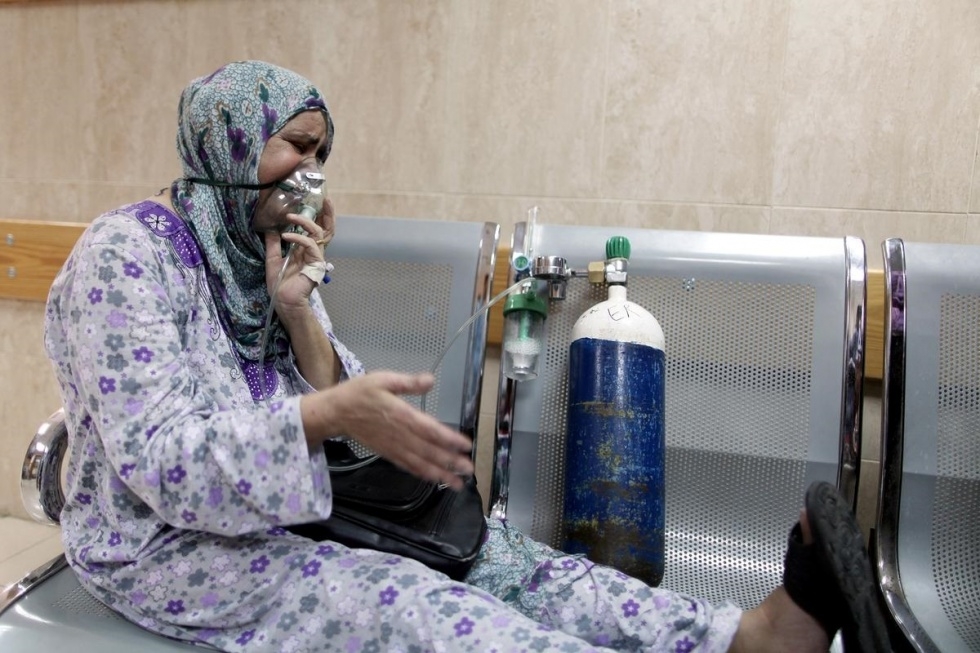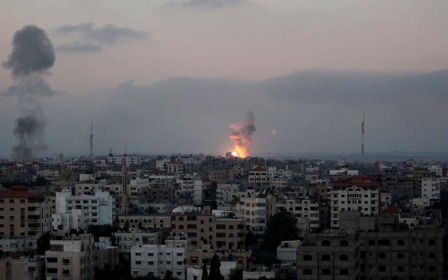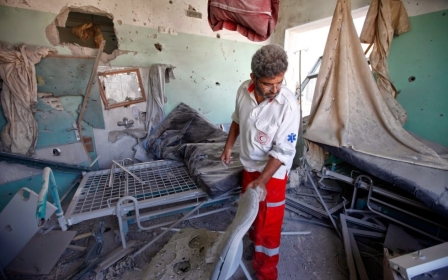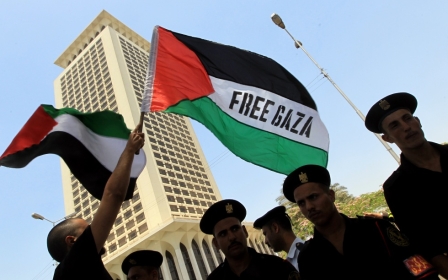Bloodiest day of fighting in Gaza as death toll climbs further

Gaza saw the bloodiest day of fighting so far, with the death toll on Monday rising to above 571, and world leaders converging to hash out a ceasefire deal.
At least 112 Palestinians were killed on Monday, according to Palestinian health officials, with further Israeli strikes continuing into the night.
The day also saw heavy losses for Israel, which confirmed that seven of its soldiers were killed during at least two separate deadly incidents.
Al-Qassam Brigades, the armed wing of Hamas, claims to have killed a further 15 Israeli soldiers near Shejaiya, although these reports have not been verified. The confirmed Israeli death toll, now stands at 25 soldiers and one civilian.
Particularly heavy Israeli shelling was reported throughout the day, with Al Jazeera suggesting that the attacks late Monday could have been deployed in an attempt to evacuate wounded soldiers.
Hospitals hit
The al-Aqsa hospital in central Gaza was also hit at around 4pm local time (14:00 GMT). At least five people, including a patient were killed and 70 wounded, with reports emerging that ambulances, that rushed to transport the wounded, were also targeted. According to Palestinian officials it was the only hospital servicing some 350,000 Palestinians although it has been badly damaged in the attack
The Palestinian Health Minister quickly lashed out at the strike describing it as “barbaric” while human rights groups called on Israel to abide by international law and do everything in its power to protect medical facilities and civilians.
Israel has not officially commented on the incident yet, although a spokesperson for Prime Minister Benjamin Netanyahu told Al Jazeera that Hamas routinely hid weapons and rockets beneath civilian buildings, such as schools and hospitals.
Minutes before the attack, the international aid group Medecins sans Frontieres, MSF, demanded that Israel stop its shelling of the Gaza Strip.
In a statement, the group said that ongoing violence was complicating its efforts to help the wounded, alleging that a vehicle clearly identified as belonging to the aid group had narrowly escaped an air strike.
Diplomatic efforts in Cairo and Qatar
The growing death toll has prompted growing international alarm.
On Monday US President Barack Obama expressed his “serious concerns about the rising number of Palestinian civilian deaths and the loss of Israeli lives.” The French President Francois Hollande also demanded urgent measures be taken.
"Everything must be done to put an immediate end to the suffering of the civil population in Gaza," said a statement from Hollande’s office.
UN Secretary General Ban Ki-moon has arrived in Cairo where he met with Egyptian officials to discuss ceasefire initiatives.
John Kerry, the US Secretary of State, also touched down in the Egyptian capital late on Monday evening for talks.
An earlier Egypt-brokered ceasefire agreement was rejected by Hamas last week, after the group said it had not been consulted on the deal and refused to lay down its arms until after a political solution had been reached. The Israeli parliament agreed to the deal.
However, senior Egyptian officials have now hinted that they might be willing to amend their truce initiative to accommodate Hamas.
“Egypt does not mind adding some of Hamas’s conditions provided that all involved parties approve,” senior Egyptian official told Reuters. Egypt's Foreign Minister, however, has since denied these reports, saying there were no plans to change the ceasefire terms.
Ismail Haniyeh, a senior Hamas leader on Monday reiterated the group’s demands, calling for a halt to Israeli “aggression”, an end to the blockade of Gaza and the release of those taken prisoner since what he called “events in the West Bank,” an apparent reference to the murder of three Israeli settler teens in late May that sparked a cycle of violence in Israel and the West Bank.
The Egyptian calls for a fresh ceasefire would be significant, given that Egypt has issued several strong statements denouncing the Muslim Brotherhood-aligned Hamas since the ouster of President Mohammed Morsi in June 2013.
While Cairo played host to leading international figures, Qatar was the scene of a more low-key but no less significant meeting, between Palestinian President Mahmoud Abbas and leading Hamas official Khalid Meshal.
The meeting was described as “good and important” by a member of Abbas’s entourage, the Israeli daily Haaretz reported.
According to a statement by Abbas’ aids, the two Palestinian leaders agreed that reaching an immediate ceasefire was a key goal, and that Egypt could be involved in the negotiation process. A senior Hamas figure previously told the Middle East Eye that Hamas no longer considered Egypt to be an honest broker.
New MEE newsletter: Jerusalem Dispatch
Sign up to get the latest insights and analysis on Israel-Palestine, alongside Turkey Unpacked and other MEE newsletters
Middle East Eye delivers independent and unrivalled coverage and analysis of the Middle East, North Africa and beyond. To learn more about republishing this content and the associated fees, please fill out this form. More about MEE can be found here.




